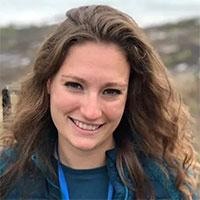Drug Free Schools and Campus Compliance and Evidence-Based Strategies to Address, Cannabis, and other Novel Substances Webinar Series
Click here to register for access to the recordings
In partnership with the PTTC, Partners in Prevention is pleased to provide these video recordings in its new training series: Drug Free Schools and Campus Compliance and Evidence-Based Strategies to Address Cannabis and other Novel Substances
This training series includes viewing five recorded webinars on your own or with your campus coalition. Our goal of this training series is to provide campuses with new research, information, and evidence-based strategies to address issues related to cannabis use among students.

Registration is free. Please register here to receive the zoom link and to register for the live Q&A.
Crossroads for Collegiate Prevention: Novel Substances and Federal Requirements
Presenter: David Arnold, Assistant Vice President of Health, Safety, and Well-Being Initiatives, NASPAIn this presentation, David Arnold from NASPA – Student Affairs Administrators in Higher Education will provide a framework of collegiate prevention, its relationship with federal compliance issues, and how changing state laws and novel substance use may necessitate a change in our approaches in higher education. The presenter will review strategies for practitioners and administrators to adapt existing strategies to meet new needs for our students and communities.

David Arnold serves as the assistant vice president of health, safety, and well-being initiatives having joined NASPA in 2014 after 10 years working college substance abuse prevention. He has spoken at dozens of conferences regarding peer education, college substance abuse prevention, and health promotion. David administers two statewide coalitions for chronic disease and substance abuse prevention in Colorado and Montana. He also chairs the Coalition of Higher Education Associations for Substance Abuse Prevention and coordinates the NASPA Strategies Conferences focused on substance abuse prevention, sexual violence prevention, mental health, and well-being.
Discussing Cannabis Use with Students: Research Findings on Effects of Use and Prevention/Intervention Opportunities
Presenters: Jason Kilmer, Ph.D. and Christine Lee, Ph.D., University of WashingtonIn this presentation, Dr. Jason Kilmer and Dr. Christine Lee from the University of Washington will review what the most recent research says about marijuana use and impact on college students, including cognitive functioning, addiction risk, academic outcomes, and health/mental health effects. Our presenters will discuss emerging science on poly-substance use (including with those who use cannabis and alcohol such that the effects overlap), and review prevention/intervention successes and opportunities.

Dr. Jason Kilmer is an Associate Professor in Psychiatry and Behavioral Sciences at the University of Washington (UW), and serves as an investigator on several studies evaluating prevention and intervention efforts for alcohol, marijuana, and other drug use by college students. In addition to research and teaching, he has worked extensively with college students and student groups around alcohol and other drug prevention programming and presentations throughout his career (including student athletes, fraternity and sorority members, residence life, and first-year students), both at UW and on campuses across the nation. Jason worked for 10 years as an Addictive Behaviors Specialist in the Counseling Center at The Evergreen State College in Olympia, Washington, then worked for 10 years as the LiveWell Assistant Director for Alcohol and Other Drug Education in LiveWell: Center for Student Advocacy, Training, & Education at UW (formerly Health & Wellness). As faculty in the School of Medicine, Jason continues his direct work with students through presentations for intercollegiate athletics and residence life. Jason also serves as the chairperson of Washington state’s College Coalition for Substance Abuse Prevention.

Christine Lee, Ph.D. is a Research Professor of Psychiatry and Behavioral Sciences at the University of Washington and a core member of the Center of the Study for Health and Risk Behaviors. She received her doctorate in Human Development and Family Studies from the University of Arizona, and has been a member of the faculty since 2004. Trained as a life-span developmental researcher, Dr. Lee has a portfolio of work focused on bridging developmental theory with applied prevention and intervention techniques for addressing high-risk behaviors during the transition to adulthood. Dr. Lee’s research focuses on answering questions regarding what motivates young adults to engage in high-risk behaviors such as alcohol and marijuana use; how life events and circumstances influence variation in risk of use and consequences over time; whether and how individuals learn from their prior experiences to avoid future harmful consequences; how developmental transitions and timing of events influence use and intervention; and the development of efficacious prevention and intervention efforts. In particular, Dr. Lee is interested in understanding how we can use technology to provide interventions in the moment when individuals might be at heightened risk. Dr. Lee has published more than 100 articles and book chapters on these topics and has received several grants from the National Institute on Alcohol Abuse and Alcoholism and the National Institute on Drug Abuse.
What We’ve Learned Since Marijuana was Legalized
Presenters: Sarah Salven and Joseph Eberstein, Center for Community Research, Marijuana Prevention InitiativeThe San Diego County Marijuana Prevention Initiative (MPI) pragmatically works to increase public awareness about the adverse effects of youth marijuana use. he MPI has been able to effectively measure trends over time, identify emerging issues and fill gaps in data collection. This workshop will share key data findings and describe changes seen in the local marijuana landscape following implementation of Proposition 64. Presenters will additionally share describe primary accomplishments of the MPI, describe challenges encountered in collecting data, and share lessons learned.
This workshop describes how the MPI has integrated local data collection to inform its work and develop best practices for preventing marijuana use among youth and young adults. Key data collection tools and sources will be discussed during this workshop to share with participants how the MPI has been able to continuously track the ever-evolving marijuana landscape both pre- and post-Proposition 64 (legalization of recreational marijuana). Presenters will share findings from primary data sources and explain how these tools can be utilized to develop or enhance meaningful data collection methodologies to meet the needs of various communities. Additionally, presenters will share challenges encountered (e.g., policy changes, evolving trends in substance use, disparate data sources, research gaps, data reporting delays, lack of local/regional data, fiscal constraints, etc.) in gathering accurate data points and describe primary accomplishments of the MPI and identify lessons learned.
Ms. Sarah Salven is the Evaluation & Prevention Coordinator at the Center for Community Research and has experience working with public and non-profit agencies in the prevention field. Sarah implements large-scale countywide evaluations and needs assessments across a variety of sectors and provides data that is actionable and relevant for decision-making across stakeholders. Ms. Salven received her MPH from San Diego State University in the field of Health Promotion and Behavioral Science.
Mr. Joseph Eberstein is a National speaker and subject matter expert regarding youth marijuana use and vaping, he is currently employed at the Center for Community Research (CCR) as the Program Manager for the San Diego County Marijuana Prevention Initiative (MPI). Advisory board member for SAMSHA region 9 PTTC. Member of the Proposition 64 Advisory Group through the Department of Health Care Services.
Creating A College Cannabis Toolkit in the Midst of Law Change
Presenter: Louise Harder, Executive Director, Prevention NetworkIn November of 2018, Michigan voters passed Proposal 1 into state law, allowing cannabis use among adults over the age of 21. In the months following, schools across the State struggled to update policy and prevention strategies with State and Federal law in conflict. This session will review a brief background of cannabis and different methodology, compare current laws and how they impact college policy, and explore promising prevention strategies based on effective prevention frameworks. Participants will learn what the research says about common reasons for use and lower risk strategies to use with students. Participants will receive the Michigan Collegiate Cannabis Prevention Toolkit (click here for the digital version).

Louise Harder, Executive Director, Prevention Network is the former Michigan Higher Education Network (MIHEN) Coordinator. During her time in that position, she oversaw a group of over 130 College professionals and local coalition partners in Michigan aimed at discussing evidence-based prevention efforts on campus. Louise graduated from Oakland University and has a background in implementing wellness strategies to students and faculty at a University.
Clearing the Smoke: Understanding the Implications of Addressing Marijuana When Laws and Regulations Conflict
Presenter: Dr. Eric Davidson, Eastern Illinois UniversityAs the landscape and culture around marijuana and cannabis use changes, institutions of higher education find themselves in the middle of an ongoing paradigm shift. While states and local municipalities allow for medicinal marijuana use, as well as decriminalize and legalize recreational marijuana use, Federal regulations and laws continue to view marijuana as a Schedule I drug. Institutions are challenged with how to address these differences with students, parents, staff, and faculty, address use when laws and expectations are in conflict, respond to requests for accommodation, and develop components of a comprehensive program to prevent use, misuse, and negative consequences.
This workshop will review current the history of cannabis and marijuana laws in the United States, highlight Federal laws and regulations which outlaw marijuana, provide insight as to what the Americans with Disabilities Act allows and does not allow regarding accommodations, addresses ways campuses can work with local municipalities to address environmental strategies to minimize misuse and abuse of marijuana, suggests components of policy statements institutions can use to address marijuana use, and summarizes how some campuses are addressing the issue.

Eric S. Davidson, Ph.D., MCHES, CSPS, is the Director, Illinois Higher Education Center for Alcohol, Other Drug, & Violence Prevention and Interim Director, Health & Counseling Services, at Eastern Illinois University. Eric received his Ph.D. in Health Education from SIUC in 2012. He also has a Master's Degree in Clinical Psychology from Eastern Illinois University (1999) and a double Bachelors' Degrees in Psychology and Speech Communications, also from EIU.
